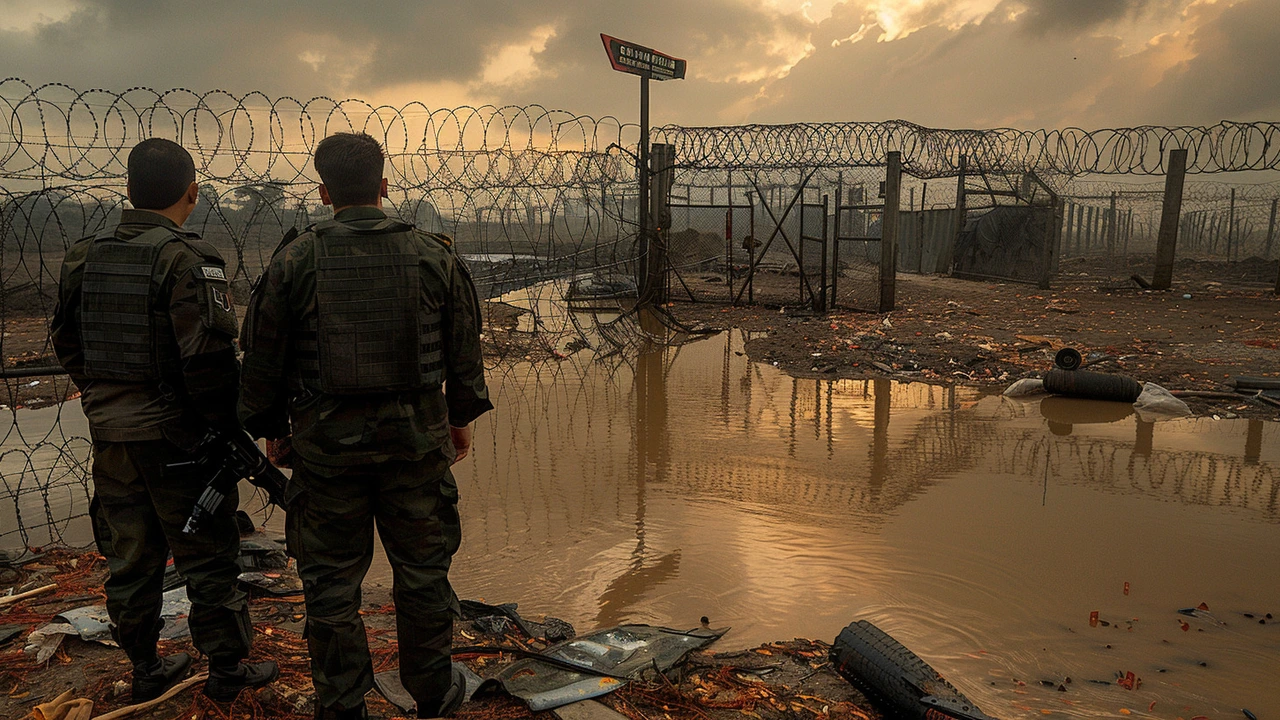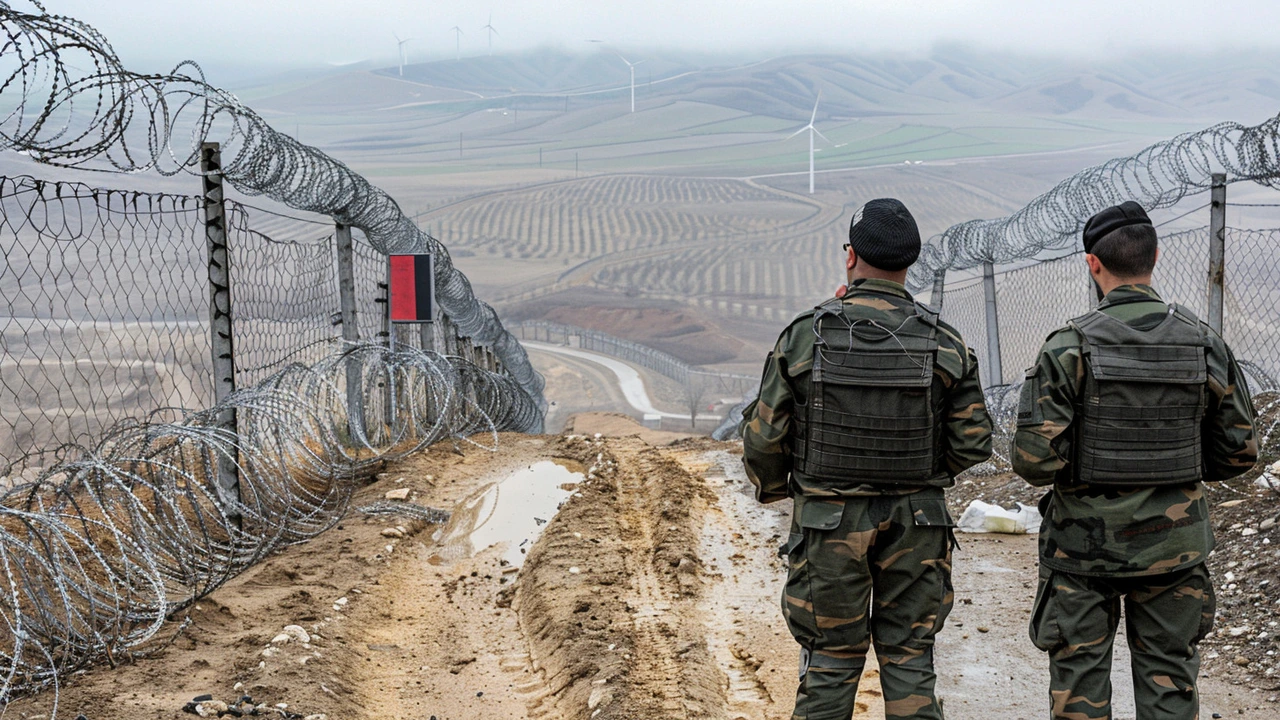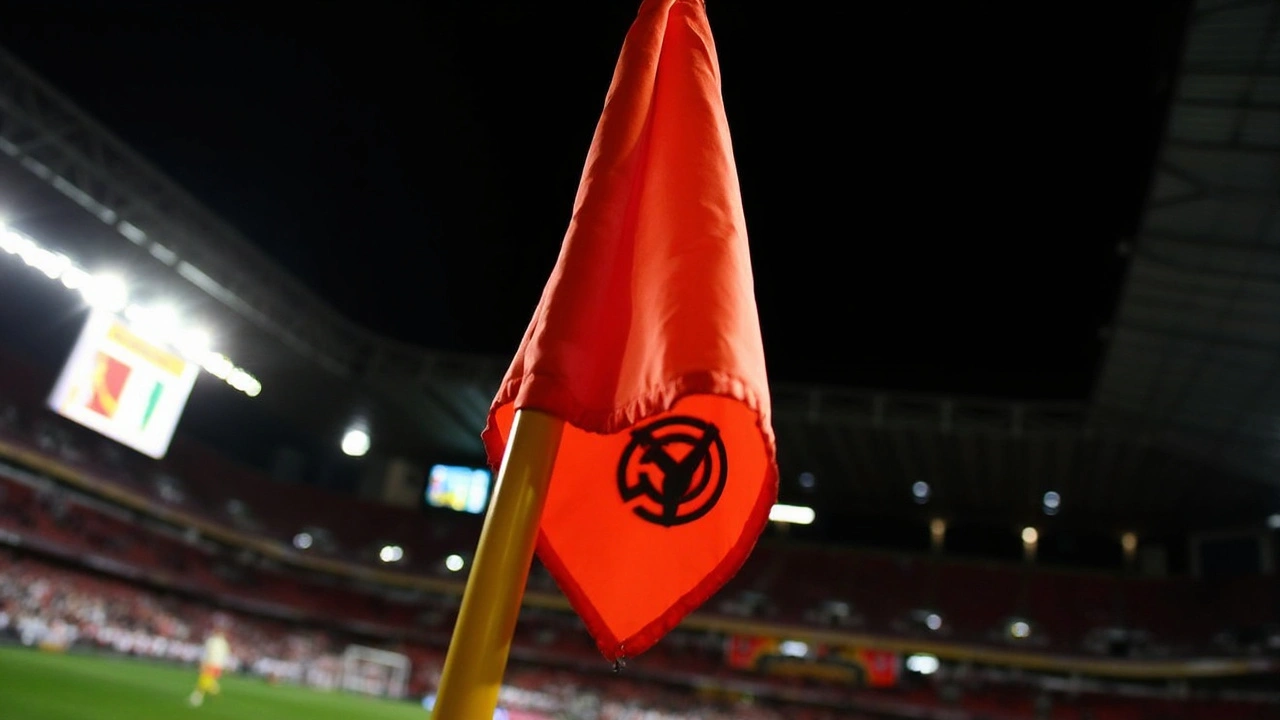North Korean Soldiers Cross DMZ into South Korean Territory
On the afternoon of June 11, 2024, a group of North Korean soldiers crossed into South Korean territory, creating an unexpected stir near the town of Goseong. The incident, which took place around 2:30 pm local time, marks a rare and disquieting encroachment into the demilitarized zone (DMZ) that separates the two Koreas.
The crossing was brief but significant, occurring at a point in history when tensions between North and South Korea have been escalating. According to the South Korean military, several North Korean soldiers entered the southern side of the DMZ before retreating back to the north. This withdrawal was prompted by warning shots fired by South Korean troops stationed in the area.
Details of the Incident
The South Korean Joint Chiefs of Staff released a statement confirming that no shots were exchanged between the two sides and there were no casualties reported. Despite the brevity of the incident and the lack of direct conflict, it nonetheless highlights the persistent fraught relationship between the two nations. The DMZ, widely regarded as one of the most heavily fortified borders in the world, does not often witness such breaches.
The motives behind this brief incursion remain shrouded in mystery. Did the soldiers wander accidentally, or was this a calculated maneuver intended to test the response of South Korean forces? Analysts are currently divided on these questions, but one thing remains clear: the situation along the Korean Peninsula remains delicately balanced, teetering between fragile peace and potential conflict.
Security Concerns and Regional Stability
For decades, the DMZ has symbolized the ongoing stalemate and enduring hostility between North and South Korea. In recent years, there have been moments of thawing relations and hopeful diplomacy; however, such incursions remind the international community of the underlying volatility that persists.
This incident has raised alarm bells not only in South Korea but across the globe. Diplomats and military strategists alike are scrutinizing the event to glean its implications for regional stability. The border between North and South Korea is not just a dividing line between two nations, but a flashpoint that encapsulates broader geopolitical tensions.
Military Presence and Preparedness
The DMZ stretches across the Korean Peninsula and serves as a buffer zone, separating the North from the South. Both nations maintain a substantial military presence along this line, with thousands of troops stationed on either side. They are perpetually on high alert, prepared to respond to any potential breach. This readiness exemplifies the high stakes and charged atmosphere of the region, where even a minor incursion can trigger widespread concern.
Following the June 11 incident, South Korea will undoubtedly review its security protocols and military preparedness. The government has reiterated its commitment to national defense and the protection of its borders, emphasizing that any future incursions will be met with appropriate force.
International Reactions
International responses to the incident have been swift. The United States, a key ally of South Korea, has expressed its support for Seoul’s actions. In a statement, the Pentagon highlighted the importance of maintaining stability in the region and assured South Korea of continued military and diplomatic backing.
China and Russia, both neighboring North Korea and influential players in regional politics, have refrained from making any immediate public statements. However, their strategic interests in the Korean Peninsula mean that they are undoubtedly monitoring the situation closely.
The United Nations has also called for restraint from both sides, urging dialogue and diplomatic measures to de-escalate tensions. The past few years have seen various international efforts aimed at fostering peace between the two Koreas, but incidents like this underscore the fragility of those endeavors.

The Path Forward
As the dust settles from this latest incident, both North and South Korea, along with the global community, must ponder the path forward. The crossing of North Korean soldiers into South Korean territory is not just an isolated event; it is a microcosm of the complex and often contentious relationship between the two nations.
Resolving these tensions will require more than just heightened military vigilance. Diplomatic engagement, mutual confidence-building measures, and sustained efforts toward peaceful coexistence are essential. The international community has a role to play, not only in mediating discussions but also in supporting initiatives that promote stability and peace.
In the meantime, life along the DMZ continues under the shadow of potential conflict. The border might be demilitarized in name, but as this incident shows, it remains a focal point of military presence and tension. South Korea’s response to this incursion was measured, yet resolute - a stance that underscores both the gravity of the situation and the nation’s readiness to defend its territory.
This moment serves as a stark reminder of the uneasy peace that prevails on the Korean Peninsula. It is a peace built on vigilance and preparedness, and one that requires constant nurturing through both strength and dialogue. The world watches and waits, hoping that the next chapter in this long-standing saga will be one of reconciliation, rather than conflict.
As developments unfold, one thing is certain: the path to lasting peace in the Korean Peninsula is as challenging as it is imperative. Only through careful negotiation and mutual respect can the two Koreas move beyond the shadows of their past and towards a more peaceful and stable future.





